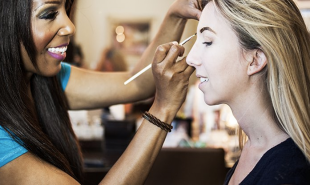It often feels that the tendency for a crisis to occur varies in proportion to how well a business is prepared for it. But the fact is, no matter how unlikely you think it is to happen, social media can have a huge impact on your reputation if you are not prepared. In 2013, burying your head in the sand and ignoring social media is simply not an option.

A 2012 Gartner study reports, “75% of organizations with Business Continuity Programs (BCP) will have public social media services in their crisis communications strategies by 2015″ – a clear indication that businesses are becoming increasingly more aware of the importance of social media in handling a crisis. According to the findings of BRANDfog’s “ 2012 CEO, Social Media & Leadership Survey”, 82% of people were more likely to trust a company whose CEO and leadership team engaged on social media – it’s naïve to think that you, as a business or a brand, can avoid being part of this strategic movement.
It is difficult to say whether crises are more common than they used to be but one thing is certain, the ubiquity of social media means that if you do have an issue as a brand it is far more likely to be discovered, talked about and morph into a crisis than ever before. It seems that barely a day goes by without opening up Twitter, Facebook or a news site to discover that once again a brand has made a gaffe and everyone is talking about it. Whether it’s the marketing team of Nikon using what should have been an innocuous Facebook status update to tell its outraged customers that a “ photographer is only as good as the equipment he uses”, or Starbucks avoiding paying taxes in the UK for three years – the fact is, that if your business doesn’t have the strategy in place to identify criticism early, decide on a course of action quickly and then communicate it efficiently to your stakeholders, then you simply don’t stand a chance.

So if you are a business or brand that is using social media as part of its marketing or customer service to engage with stakeholders, there is absolutely no excuse for not having a crisis plan in place that utilises social media. Crisis experts used to talk about the Golden 24 hours within which they needed to respond to issues. The advent of the 24 hour news cycle and the relentless growth of social media cut that to the ‘Golden Hour’, and more recently the time within which a brand is expected to respond online to a crisis, (or ‘Twitter Time’ as it is often known), has come down to around 15 minutes. When a member of Kitchen Aid’s social media team inadvertently sent a derogatory tweet about President Obama’s grandmother during the first Presidential debate, and did so from the company account rather than a personal one, it was only very rapid action that saved the reputation of a respected American brand.

Even if you are not using social media as part of your proactive outreach you can still be absolutely certain that your stakeholders are nevertheless talking about you and your brand across social media. So, if you haven’t embraced social media yet, a sensible New Year’s resolution would be to start looking at it now and to at least explore how it can be integrated into either your business or your crisis planning (or preferably both).
No matter what your budget is, having an online presence is undoubtedly going to be crucial in the coming years, if only to monitor what is being said about your company or organization. Whether you end up ever actually using social media for crisis management, “attempting to leverage social media for the first time during a crisis can cause more harm than good”, according to Andrew Walls, research Vice President at Gartner. There is an old story about a company who asked when was the best time to start building a business relationship in China. The answer – “10 years ago!” The same applies to social media. Those companies that have already invested in building and establishing an online relationship with their stakeholders are so much better placed to weather a storm than those using it for the first time in a crisis.
Consumers demand transparency, authenticity and engagement from their brands, and businesses smart enough to pay attention to this consumer expectation are usually brands well prepared for a crisis. Even preparing yourself with the social media basics can prove beneficial. If you have a Facebook page but don’t have someone able to constantly keep an eye on it, simply switch off the capacity for the public to comment on your page. It’s this simple awareness that puts you in front of many other uninformed competitors.
Brands are built on a very delicate foundation of trust and the key challenge for companies faced with a crisis is to preserve that consumer trust and ultimately their reputation. As many brands have found to their cost, responding too slowly to a crisis or communicating inappropriately with the public can destroy this trust in an instant. So being prepared in advance of a crisis is an absolute prerequisite to success and will go a long way to helping to protect the reputation of your brand.
In the second part of this two part blog post, will look at the key considerations when the unthinkable happens.
You can register here for the webinar – How to Effectively Manage a Social Media Crisis on February 5th.
More Social articles from Business 2 Community:






